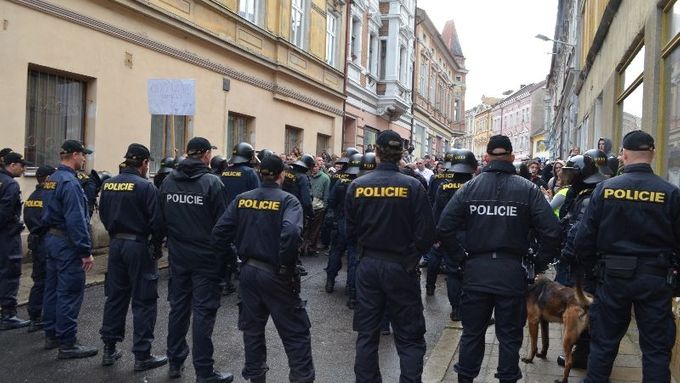Prague - An increasing anti-Roma sentiment in some parts of the society may become a bigger problem for the security of the Czech Republic than organized far-right groups, said the Czech BIS security agency in its quarterly report on political extremism.
The BIS warned that most participants of recent anti-Roma protests in Ceske Budejovice and Duchcov were ordinary citizens, instead of organized far-right activists. Those people participated in the mentioned protests in order to express their dissatisfaction with small-scale criminality and social problems in their neighborhoods, said the report.
Police on racial riots: "We couldn't see it coming"
Calm before storm? Czech extremist scene stagnates
"It is necessary to start addressing the inter-ethnic tension - energetically, pragmatically and without emotions. Otherwise there is the risk of a gradual escalation of this problem in the long term, with a growing skepticism among some parts of the society towards the democratic principles of the Czech Republic," said the report, adding that the far-right DSSS party has tried to politically exploit this growing anti-Roma mood in the society.
Violent far-right activists and hooligans have also tried to escalate the mentioned protests by provoking clashes between the police and ordinary citizens. The report speaks about "neo-Nazi tourists" who tour anti-Roma protests in different parts of the country in order to provoke riots. "Police mostly know these people, they often have a criminal record. They visit other cities to fight with police," said the report.
However, organized and violent groups of far-right extremists are a minor problem compared to the anti-Roma sentiment in the society, because these groups are less numerous and law-enforcement officers are relatively well-informed about their structure and activities.
